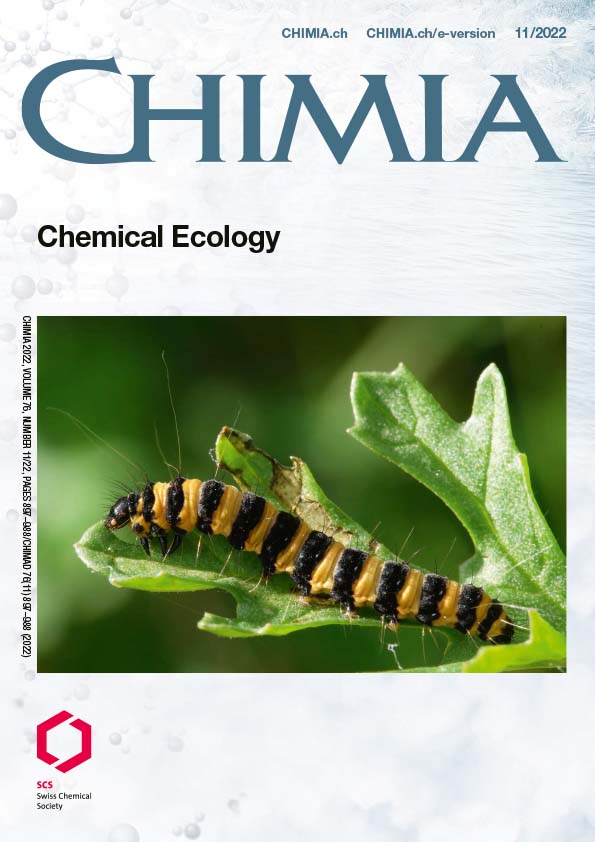Root Exudation of Specialized Molecules for Plant-Environment Interaction
DOI:
https://doi.org/10.2533/chimia.2022.922PMID:
38069787Keywords:
Behavioural assays, Flavonoids, Hydroponic culture, Root chemistry, Strigolactones, sesquiterpenes, Untargeted metabolomicsAbstract
It has been estimated that between 40 and 60 % of the assimilated carbon is diverted to the roots and released in the rhizosphere in form of root exudates. Root exudates thus define a complex mixture of low and high molecular weight compounds, including carbohydrates, amino acids, organic, and proteins, but also a broad spectrum of specialized molecules, such as flavonoids, glucosinolates, terpenoids, or alkaloids. Root exudates favour soil mineral nutrition, can bind to soil aggregate and in turn modify soil physico-chemical properties, but also mediate plant-plant, plant-microbe, and plant-animal interactions belowground. With this review, we aim to highlight how chemical ecologists have approached the study of root exudates-mediated interactions between plants and their biotic and abiotic surroundings. We do so by presenting a series of study cases for, on one hand, showcasing different methodologies that have been developed to test the activity of different root exudates, and, on the other hand, to show the broad array of interactions mediated by root exudates. Ultimately, we aim to spur further research and collaborations between chemists and ecologists studying belowground chemically-mediated interactions, so as to tackle essential challenges in terms of food security and climate change in the near future.
Funding data
-
Schweizerischer Nationalfonds zur Förderung der Wissenschaftlichen Forschung
Grant numbers 310030_204811;31003A_179481;31003A_159869;PA0033_121483
Grant numbers 310030_204811;31003A_179481;31003A_159869;PA0033_121483
Downloads
Published
How to Cite
Issue
Section
License
Copyright (c) 2022 Sergio Rasmann, Ivan Hiltpold

This work is licensed under a Creative Commons Attribution 4.0 International License.







